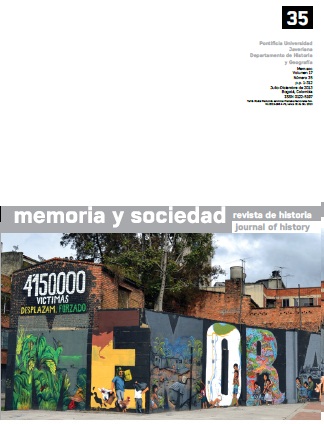Resumen
En este artículo, se identifican las características principales de la publicidad incluida en la revista Vanguardia (1941-942) y en los periódicos Combate (1944) y Trinchera (1946), todas publicaciones vinculadas con el Partido Comunista de Costa Rica. También se consideran las especificidades de las personas, instituciones y empresas que publicaron anuncios comerciales en esos medios. Finalmente, se analiza en qué medida algunos de los contenidos de tales anuncios se relacionaban con discursos más amplios presentes en la década de 1940 (nacionalismo económico y defensa de la democracia), mientras que otros promovían valores, creencias, visiones de mundo y estilos de vida distintos de la cultura que trataban de difundir los comunistas.La revista Memoria y Sociedad se encuentra registrada bajo la licencia Creative Commons Reconocimiento 4.0 Internacional. Por lo tanto, esta obra se puede reproducir, distribuir y comunicar públicamente en formato digital, siempre que se reconozca el nombre de los autores y a la Pontificia Universidad Javeriana. Se permite citar, adaptar, transformar, autoarchivar, republicar y crear a partir del material, para cualquier finalidad (incluso comercial), siempre que se reconozca adecuadamente la autoría, se proporcione un enlace a la obra original y se indique si se han realizado cambios. La Pontificia Universidad Javeriana no retiene los derechos sobre las obras publicadas y los contenidos son responsabilidad exclusiva de los autores, quienes conservan sus derechos morales, intelectuales, de privacidad y publicidad.
El aval sobre la intervención de la obra (revisión, corrección de estilo, traducción, diagramación) y su posterior divulgación se otorga mediante una licencia de uso y no a través de una cesión de derechos, lo que representa que la revista y la Pontificia Universidad Javeriana se eximen de cualquier responsabilidad que se pueda derivar de una mala práctica ética por parte de los autores. En consecuencia de la protección brindada por la licencia de uso, la revista no se encuentra en la obligación de publicar retractaciones o modificar la información ya publicada, a no ser que la errata surja del proceso de gestión editorial. La publicación de contenidos en esta revista no representa regalías para los contribuyentes.


